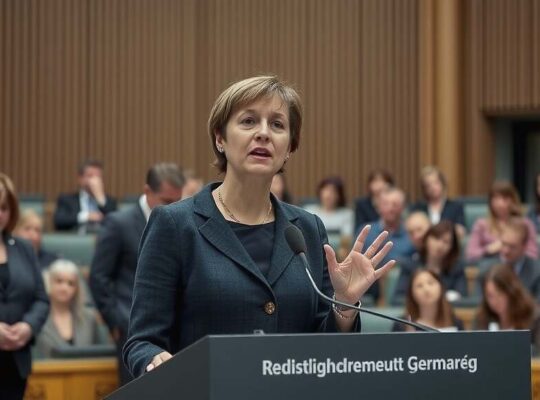German rail industry representatives have expressed reservations regarding the scope of proposed reforms to Deutsche Bahn, spearheaded by Federal Transport Minister Patrick Schnieder (CDU). While acknowledging the initiative, stakeholders believe the current timeline and ambition level may be insufficient to address the sector’s challenges.
Dirk Flege, Managing Director of the Allianz pro Schiene, stated that the outlined framework positions 2027 as a pivotal year for rail transport, with planned implementation of measures such as track pricing reforms and infrastructure planning initiatives. He emphasized the need for a clear strategic vision to be established “before” this implementation. Currently, he suggested, the framework provides a foundation but lacks comprehensive direction.
Flege further commented that the government’s self-imposed targets appear somewhat restrained, particularly in contrast to the specific and demanding requirements being placed on Deutsche Bahn AG. He advocated for the completion of the rail strategy in 2024, allowing rail associations to consider it a definitive strategy, a process that requires significant work within a task force and ongoing discussions, with a deadline no later than early 2027.
Regarding Minister Schnieder’s stated goal of achieving a 70 percent punctuality rate for long-distance rail services by 2029, Flege described the target as “initially sobering”. He conceded that it likely reflects the reality of a significant and ongoing program of infrastructure upgrades. He explained that without the current intensive construction efforts, necessitated by decades of deferred maintenance, such a target would be considered unambitious. However, he underscored that significant construction and maintaining a high level of punctuality present inherent conflicts.












